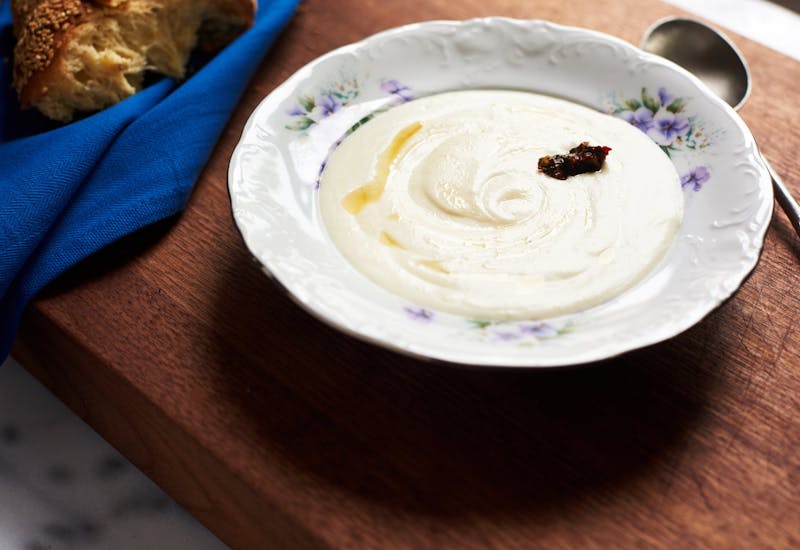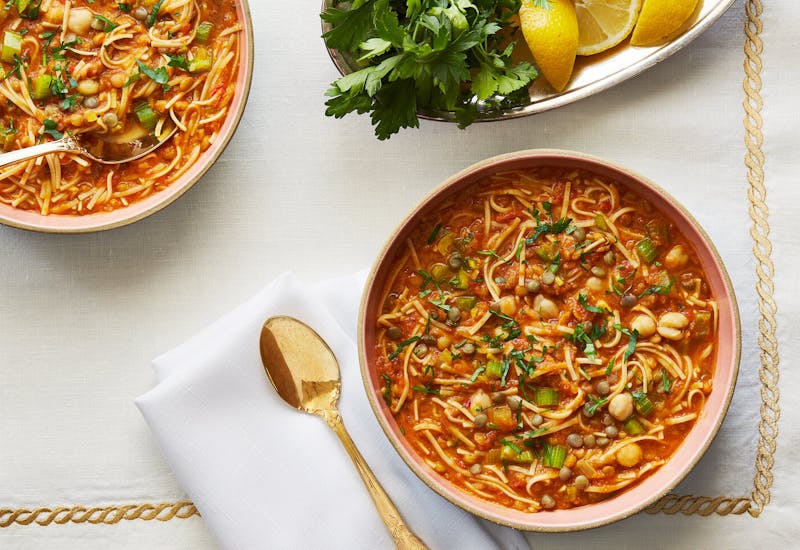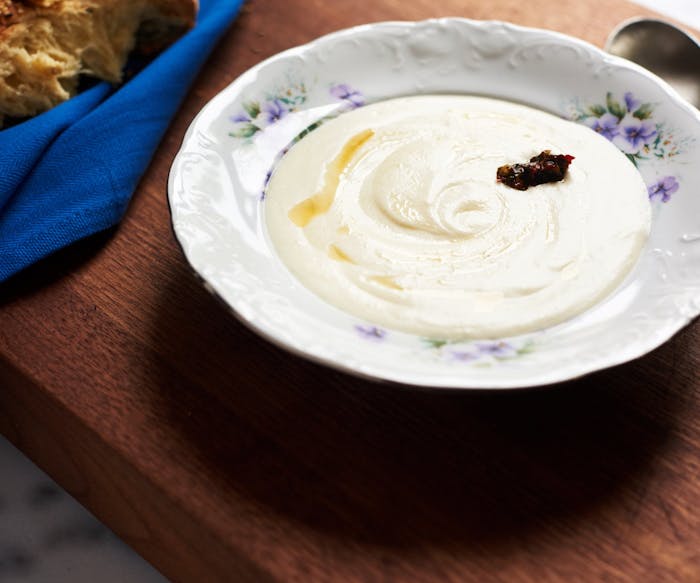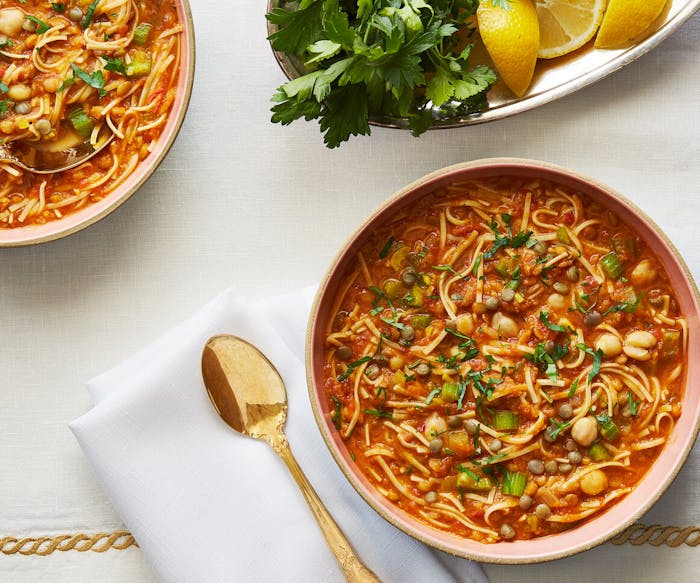Rinat Tzadok’s father, Shlomo, doesn’t know his exact birthday. He was born during his parents’ trek from Yemen to Israel in 1949 as they were making aliyah to the new state.
In their new home, Yemenite cooking remained an essential part of family life. Rinat, who is a baker in Tel Aviv, remembers her grandmother Miriam, the second wife of Rinat’s grandfather, cooking in a “magic little shed” in her yard. Miriam would cook stews over kerosene burners there, blend Yemenite hot sauce called schug from green and red hot peppers that she grew, grind her own flour, and slaughter chickens for a rich soup and Jerusalem mixed grill.
On Saturdays, when Rinat’s father went to synagogue, she would follow him. “I waited for the service to end because that’s when grandma served her signature spread: fresh kubaneh, grated tomatoes, schug, bean stew, white coffee, and sweet black coffee with hawaij,” she says.
For Yom Kippur, Miriam made samnah, a condiment of smoked clarified butter that she infused with burned twigs and leaves. It adds a campfire flavor to a warm Yemenite yogurt soup called zom, which Rinat’s family often ate to break the fast. “My mom put challah in the oven until it was crispy and we’d eat the zom with samnah, schug and challah,” says Rinat. “It’s comforting, it’s hot, and it’s nice after you haven’t eaten for two days.”
Today, in Israel, Rinat’s mother makes zom by mixing 9% and 5% soft white cheeses. In the US, Rinat recommends mixing sour cream, yogurt and water. “I still eat it every year,” says Rinat. “After 38 years this is the dish we eat after Yom Kippur.”



